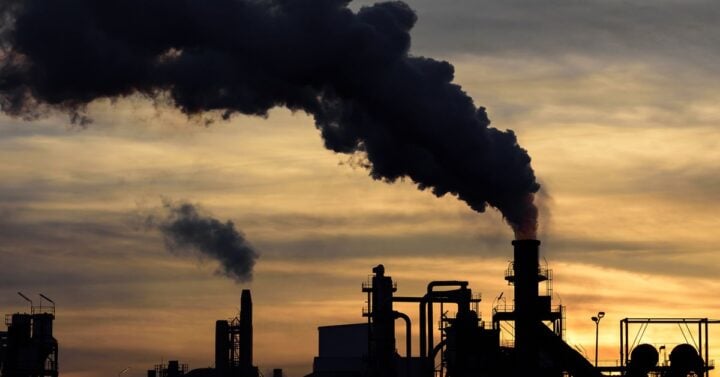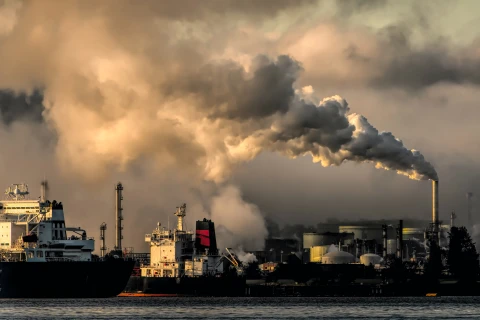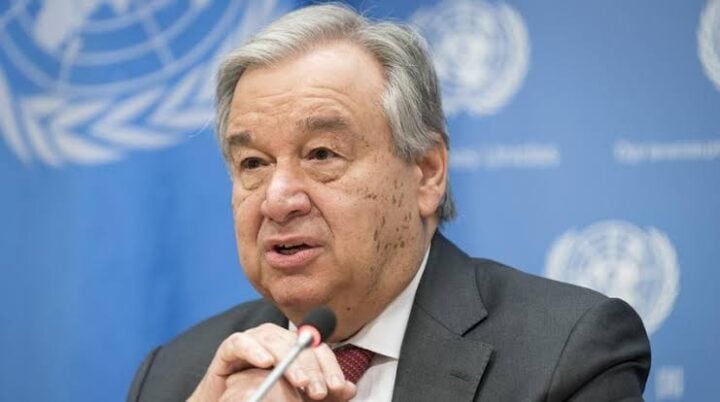Despite directly impacting our communities, health, and livelihood, climate-related reports usually take a back seat to dominant news beats like politics and business. Climate Watch aims to ensure you never miss important stories on climate change and actions being taken toward limiting its impact.
Here is a round-up of last week’s climate stories:
- On World Environment Day, a report published by the Minderoo-Monaco Commission revealed that unsustainable disposal of plastics causes the contamination of water and marine food chains. According to the report, toxic chemicals found in plastics increase the risk of miscarriages, obesity, cardiovascular disease, and cancers. The commission said the negative effects of plastics can be avoided through better production practices, alternative design, less toxic chemicals, and decreased consumption. Find out more here.
- Also, Zacharia Buba-Yaduma, director-general of the Forestry Research Institute of Nigeria (FRIN), said plastic pollution is harmful to human health and marine life. Buba-Yaduma said there is an urgent need for the government to reduce single-use plastic. He urged businesses and individuals to find alternatives that are sustainable to plastic for the planet and its inhabitants. Read more here.
- At the Bonn climate change conference, Simon Stiell, United Nations executive secretary, on June 5, said the world is at a tipping point in the climate crisis. Stiell called on nations to put aside their differences, prioritise the global common good, and make brave decisions to limit global warming. Read more here.
- At the conference, Jim Skea, co-chair of the Intergovernmental Panel on Climate Change (IPCC) Working Group III, said half of the global emissions could be slashed using renewable energy. Skea said solar and wind, as well as avoiding deforestation are the low-cost big tickets to reducing greenhouse gas emissions by 2030. Read more here.
- Meanwhile, the United Nations and international energy organisations in a report issued on June 6, said the current pace to achieve SDG 7 – which aims to ensure access to affordable, reliable, sustainable, and modern energy for all – is not adequate to achieve the 2030 targets. The organisations attributed the slow pace to global economic factors such as high levels of inflation, currency fluctuations, lack of financing, as well as effects of the COVID-19 pandemic. Find out more here.
- The federal government, on June 7, said companies operating in the country would begin to disclose their sustainability-related financial information from January 2024. Shuaibu Ahmed, executive secretary of the Financial Reporting Council of Nigeria (FRCN), said the move would provide investors with knowledge about risks and opportunities facing an entity. Ahmed said the initiative would promote transparency, as well as help investors to make informed decisions on providing resources. Read more here.
- Last week at the opening of the 2nd Glasgow dialogue on loss and damage, Simon Stiell, UN executive secretary, said almost four billion people were at risk of the climate crisis. Stiell said global emissions continued to rise, adding that loss and damage funding is a lifeline for vulnerable people in developing countries to build resilience and minimise loss. Stiell also said the response to the global stocktake must be accelerated. Read more here.
- The joint taskforce committee on refuse evacuation (JTCRE) which was set up by Abba Kabir Yusuf, Kano state governor, evacuated 400 trucks of waste across the state. Aliyu Yakubu Garo, permanent secretary of the state’s ministry of environment, said the aim of the exercise was to ensure the prevention of blocked waterways that could lead to flooding during the rainy season. Garo charged residents to imbibe the culture of desilting their drains regularly to avoid flooding. Read more here.
- Chukwumerije Okereke, a professor at Alex Ekwueme Federal University, said President Bola Tinubu omitted climate change as a priority in his inaugural speech. Okereke said climate change poses a major risk to Nigeria’s economy, adding that it is already costing the country up to $100 billion and could cost up to N460 billion by 2050. He said Tinubu’s administration must prioritise the environmental challenge because it can offer Nigeria enormous opportunities that could fuel the global transition to tackle climate change and create jobs. Read more here.
Add a comment






